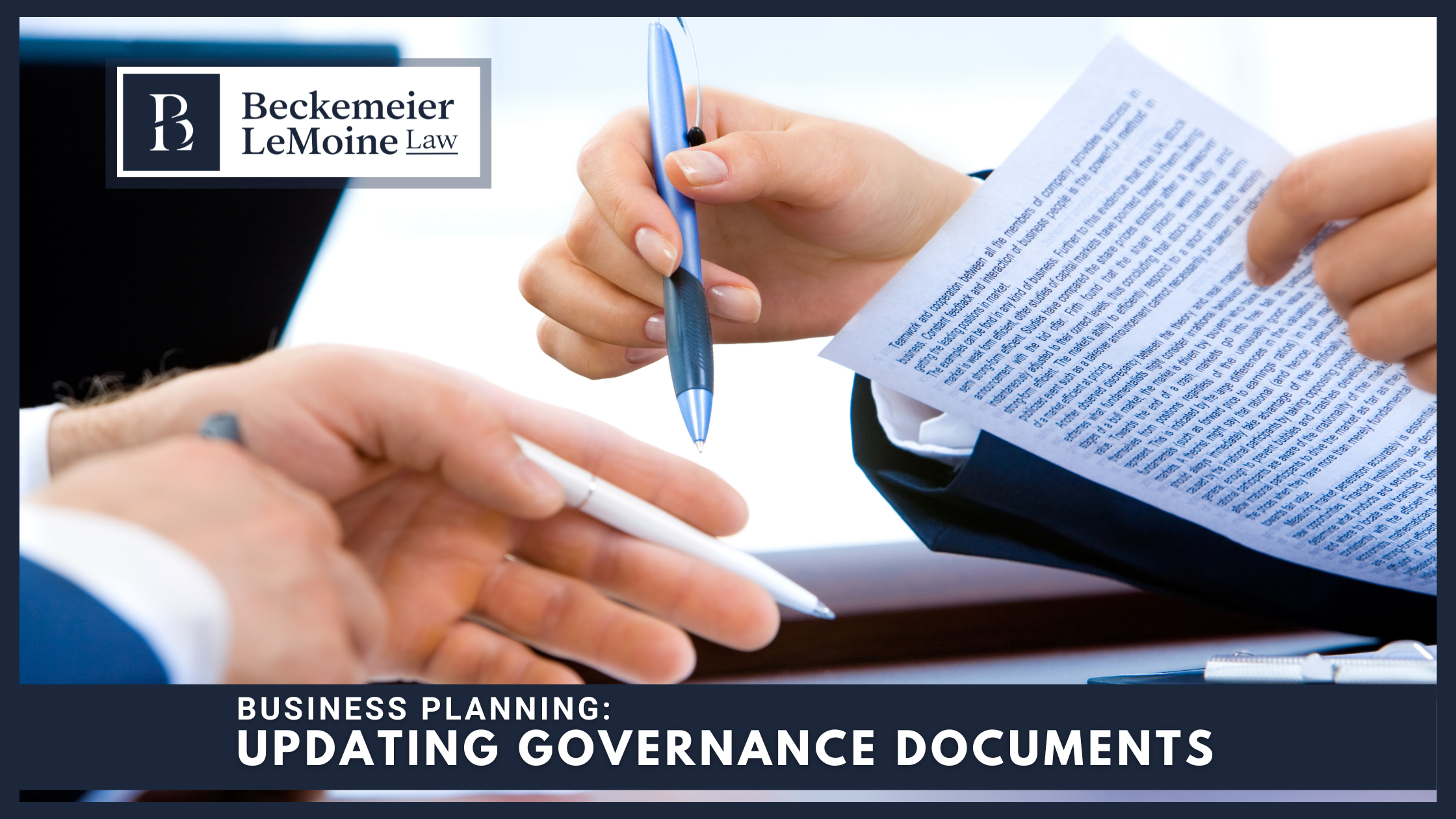
In the dynamic landscape of modern business, one aspect remains constant: the need for well-structured governance documents. These crucial elements form any organization’s backbone because they clarify its structure, policies, and procedures.
Updating these documents regularly is imperative with the ever-changing business environment and evolving legal requirements. This practice not only ensures compliance with legal standards but also reflects the current state and aspirations of the business.
The Importance of Regular Updates
Adapting to Legal and Regulatory Changes
Laws and regulations are in flux, often changing to adapt to new economic realities and societal expectations. Businesses must stay ahead of these changes to avoid legal pitfalls. By updating governance documents regularly, companies ensure they remain compliant with current laws and regulations, thus avoiding potential legal issues.
A Genuine Representation of Your Business
As a business grows, diversifies, or enters new markets, its governance structure may need to evolve. For instance, entering new markets or acquiring new entities requires adjustments in governance documents to represent these changes accurately. This ensures the governance structure remains aligned with the business’s current operations and goals.
Enhancing Decision-Making and Reputation
Clear, up-to-date governance documents provide a framework for informed decision-making, ensuring that decisions are made efficiently and in the company’s best interests. Furthermore, well-maintained governance documents send a strong message about the company’s commitment to ethical and responsible business practices, which is crucial for maintaining a positive reputation.
Key Documents
Essential Governance Documents
Several documents are vital for governance, including the articles of incorporation or organization, bylaws, conflict of interest policy, code of conduct, and whistleblower policy. Each plays a unique role in defining the company’s structure and operational ethos.
The Process
Updating governance documents is a meticulous process, often necessitating legal support. It involves identifying change areas, revising content to match current practices, reviewing the changes with key stakeholders, and officially signing and distributing the updated documents. This process ensures that all changes are accurately reflected and communicated within the organization.
Regularly updating governance documents is a fundamental aspect of business planning. It is crucial for legal compliance, reflecting business growth and changes, and fostering ethical decision-making. These documents are not just formalities but reflect a company’s core values and operational framework. Businesses, particularly those within the business community, should prioritize this task to maintain their integrity and efficiency.
Beckemeier LeMoine Law
Beckemeier LeMoine Law is a sophisticated law firm with a comprehensive range of services. Schedule a consultation with us to navigate the complexities of updating your governance documents, ensuring legal compliance, and maintaining your company’s reputation for responsible business practices.

